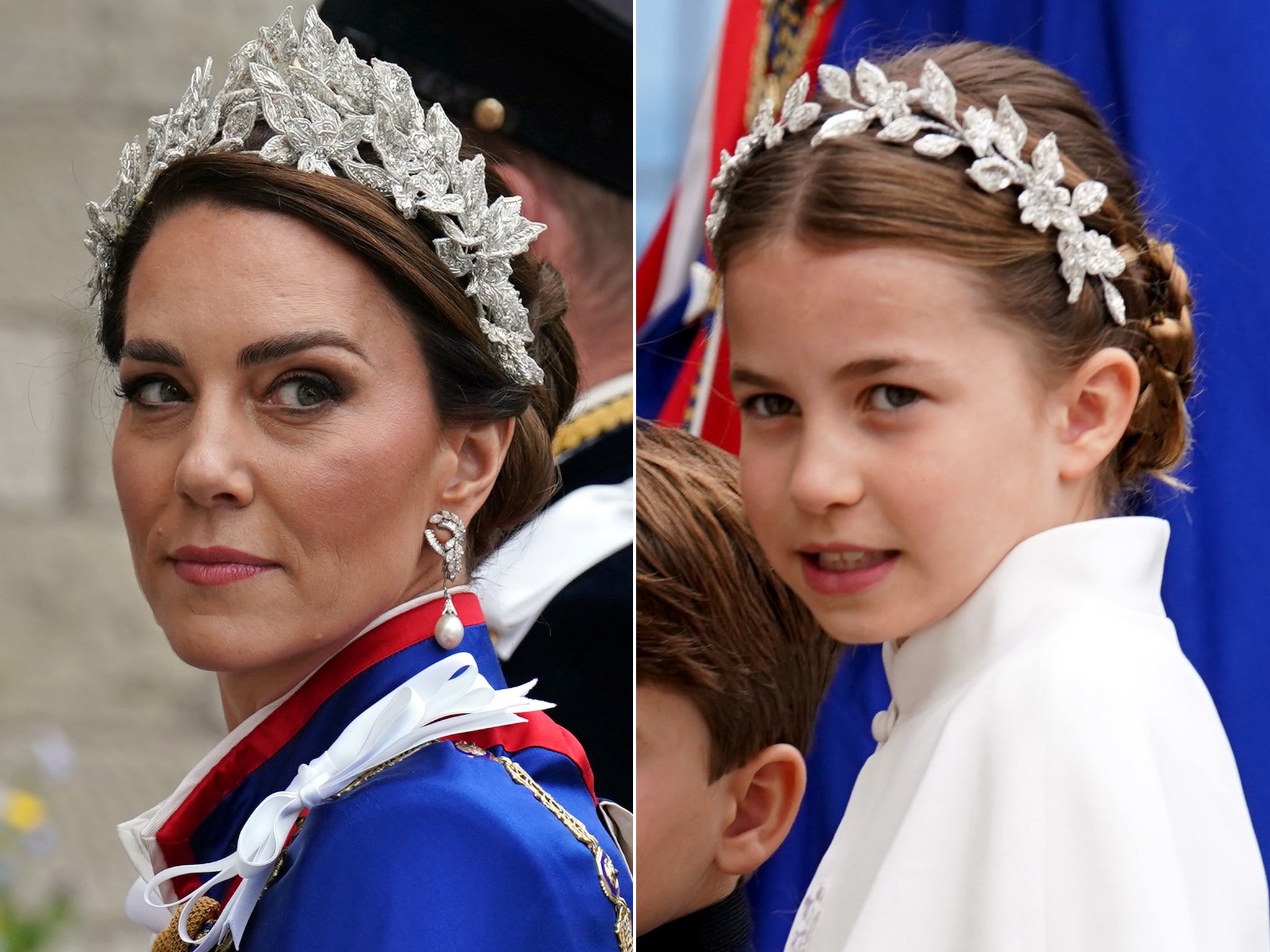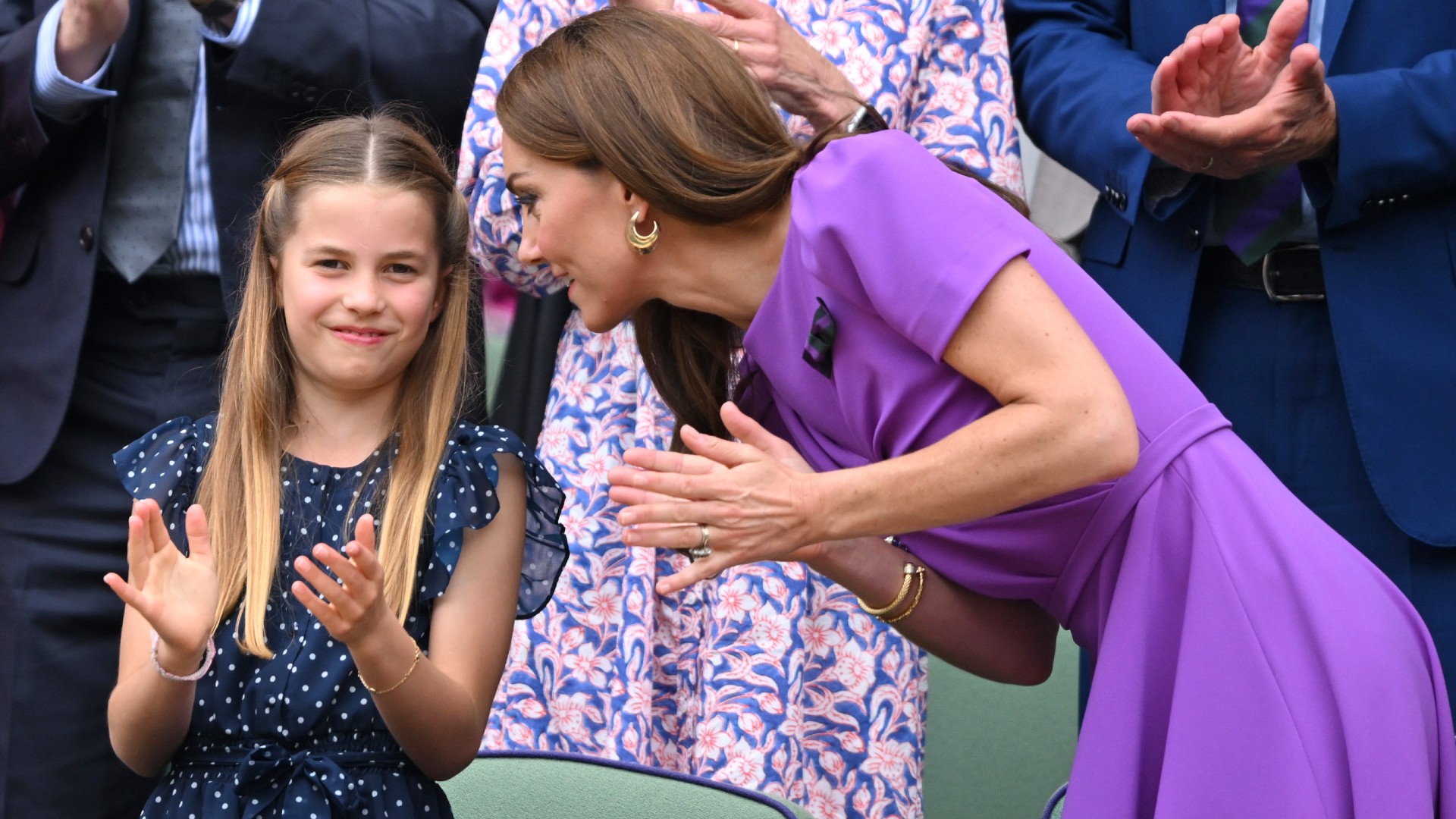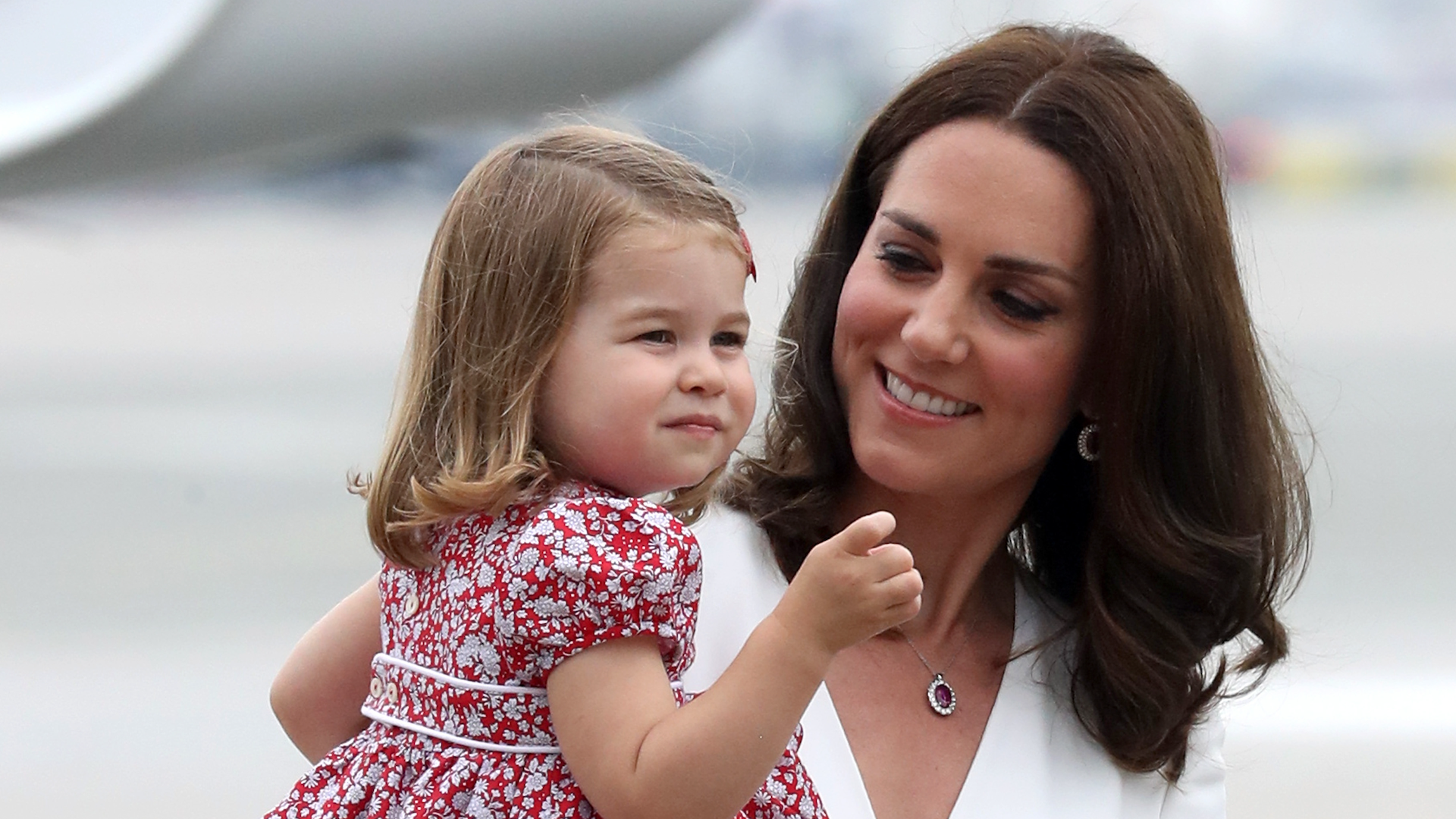The marble halls of Kensington Palace were bathed in soft candlelight, casting flickering shadows on centuries-old portraits. Outside, London was quiet. But inside, a sacred moment was about to unfold—one that would bring a royal family, and a watching world, to its knees.
July 1st would’ve been Princess Diana’s 64th birthday.
It was meant to be a private remembrance, a quiet evening among family. No press, no cameras. Just close friends and loved ones gathered in the heart of the palace she once called home. A grand piano sat silently in the corner of the room. A single white rose lay across it—Diana’s favorite flower.

Then, as the room hushed, 10-year-old Princess Charlotte stepped forward, dressed in a soft ivory gown with lace cuffs that echoed the grace of a bygone era. She clutched a microphone with both hands, her voice barely above a whisper as she turned to her mother.
“Sing with me, Mummy…
Catherine, Princess of Wales, looked down, startled for only a heartbeat. Then she nodded gently, took Charlotte’s hand, and walked toward the piano. Sitting at the bench, Kate ran her fingers lightly over the keys. A breath. A pause.
And then—another presence entered the space.

From behind the curtain stepped Susan Boyle. The Scottish singer, whose rise to fame was itself a modern fairytale, had been quietly invited by Prince William weeks before. Diana had loved Susan’s voice—pure, untrained, and brimming with emotion. She represented something real, something Diana herself had always longed for in a life full of pageantry.
No announcement. No introduction. Just the beginning notes of Elton John’s “Your Song,” played softly by Kate, as Charlotte and Susan stood side by side.
The first verse was Charlotte’s—shaky, sweet, and achingly sincere. Her voice carried the tremble of youth, but behind it was something deeper: the weight of legacy, of love passed down through stories and lullabies.

Susan followed, her voice rich and full, wrapping around Charlotte’s like a protective arm. Kate’s harmonies drifted in next, subtle and steady. Three generations—one lost, two standing—linked by a melody.
There were no dry eyes in the room. Guests stood frozen, hands clasped, some weeping quietly. Prince George and little Prince Louis leaned into their father, who stood near the doorway, watching silently. William’s eyes were glassy, his chest rising with the kind of breath you take when you’re trying not to cry.
For a moment, it felt as if Diana was there—in the warmth of Charlotte’s innocence, in the strength of Kate’s grace, in the raw honesty of Susan’s voice. The song wasn’t polished. It wasn’t rehearsed. But it didn’t need to be.
Because this wasn’t about perfection.
It was about presence.
As the final note faded, there was no applause. Just stillness. A collective understanding that something holy had just happened. Charlotte turned toward her mother, her eyes shining with unshed tears. Kate kissed her gently on the forehead.
Susan Boyle stepped back quietly, hands folded, her own face streaked with emotion. She hadn’t sung for fame tonight. She had sung for a friend she’d never met—and for the little girl who dared to whisper, “Sing with me, Mummy.”
Later, when the candles were nearly melted and the rose had begun to wilt, Prince William sat alone at the piano. He didn’t play. He didn’t speak. He simply stared at the keys, his fingers hovering, remembering.
Some songs aren’t meant for concerts.
Some are meant for healing.
And on this night, beneath the vaulted ceilings of Kensington Palace, a mother was honored not with speeches or ceremonies—but with a trembling voice, a mother’s hands on the keys, and a miracle voice from Scotland that turned grief into music.
It wasn’t a performance.
It was a love letter in harmony.
And somewhere beyond the candlelight, Diana smiled.